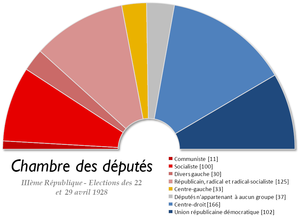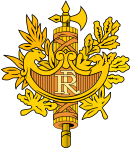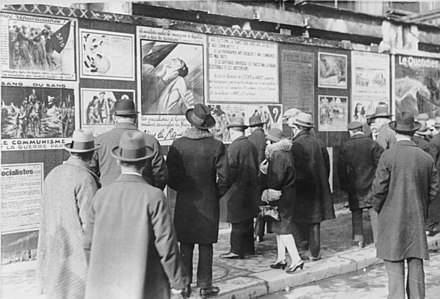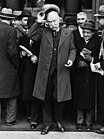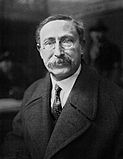
New Caledonia is a French sui generis collectivity with a system of government based on parliamentarism and representative democracy. The President of the Government is the head of government, and there is a multi-party system, with Executive power being exercised by the government. Legislative power is vested in both the government and the Congress of New Caledonia. The judiciary is independent of the executive and the legislature.

The Radical-Socialist and Radical Republican Party was a liberal and social-liberal political party in France. It was also often referred to simply as the Radical Party, or to prevent confusion with other French Radical parties as the Parti radical valoisien, abbreviated to Rad, PR, or PRV.

The Senate is the upper house of the French Parliament. Indirectly elected by elected officials, it represents territorial collectivities of the Republic and French citizens living abroad. The Senate enjoys less prominence than the lower house, the directly elected National Assembly; debates in the Senate tend to be less tense and generally receive less media coverage.
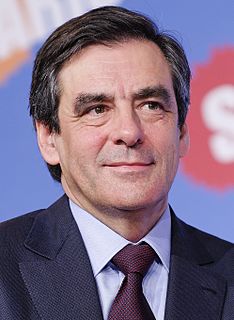
The French legislative elections took place on 10 June and 17 June 2007 to elect the 13th National Assembly of the Fifth Republic, a few weeks after the French presidential election run-off on 6 May. 7,639 candidates stood for 577 seats, including France's overseas possessions. Early first-round results projected a large majority for President Nicolas Sarkozy's UMP and its allies; however, second-round results showed a closer race and a stronger left. Nevertheless, the right retained its majority from 2002 despite losing some 40 seats to the Socialists.

French legislative elections to elect the 16th legislature of the French Third Republic were held on 26 April and 3 May 1936. This was the last legislature of the Third Republic and the last election before World War II. The number of candidates set a record, with 4,807 people vying for 618 seats in the Chamber of Deputies. In the Seine Department alone, there were 1,402 candidates.

French legislative elections to elect the 15th legislature of the French Third Republic were held on 1 and 8 May 1932.

Laurent Timothée Marie Wauquiez is a French politician, currently serving as President of The Republicans.
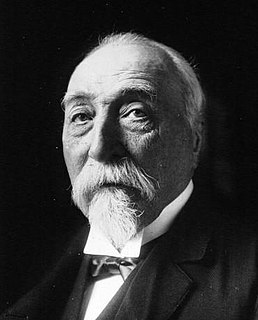
The 1910 general election was held on 24 April and 8 May 1910.

The 1919 legislative election, the first election held after World War I, was held on 16 and 30 November 1919.

Regional elections were held in France on 14 and 21 March 2010. At stake were the presidencies of each of France's 26 régions, which, though they do not have legislative autonomy, manage sizable budgets.
United Republic is a centre-right political party in France launched by Dominique de Villepin, a former Prime Minister, on 18 June 2010.

The National Centre of Independents and Peasants is a liberal-conservative and conservative-liberal political party in France, founded in 1951 by the merger of the National Centre of Independents with the Peasant Party and the Republican Party of Liberty.

The Socialist Party is a social-democratic political party in France and was, for decades, the largest party of the French centre-left. The PS used to be one of the two major political parties in the French Fifth Republic, along with the Republicans. The Socialist Party replaced the earlier French Section of the Workers' International (SFIO) in 1969, and is currently led by First Secretary Olivier Faure. The PS is a member of the Party of European Socialists (PES), the Socialist International (SI) and the Progressive Alliance.
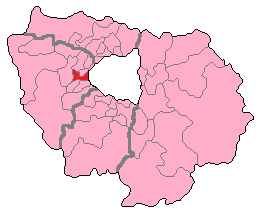
The 3rd constituency of Yvelines is a French legislative constituency in the Yvelines département.
La République En Marche!, sometimes called En Marche!, is a centrist, liberal and social-liberal political party in France. It was founded on 6 April 2016 by Emmanuel Macron, a former Minister of Economy, Industry and Digital Affairs, who was later elected President of the French Republic in the 2017 election with 66.1% of the second-round vote. Macron considers La République En Marche! to be a progressive movement, uniting both the left and the right.
The Radical Movement, whose complete name is Radical, Social and Liberal Movement is a social-liberal political party in France.

The 1st constituency of Maine-et-Loire is a French legislative constituency in the Maine-et-Loire département. Like the other 576 French constituencies, it elects one MP using the first past the post election system with a run-off.

The 2nd constituency of Maine-et-Loire is a French legislative constituency in the Maine-et-Loire département. Like the other 576 French constituencies, it elects one MP using the first past the post election system with a run-off.
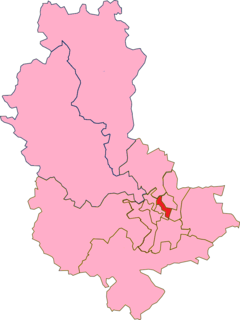
The 4th constituency of the Rhône is a French legislative constituency in the Rhône département. Like the other 576 French constituencies, it elects one MP using the first past the post election system with a run-off.
